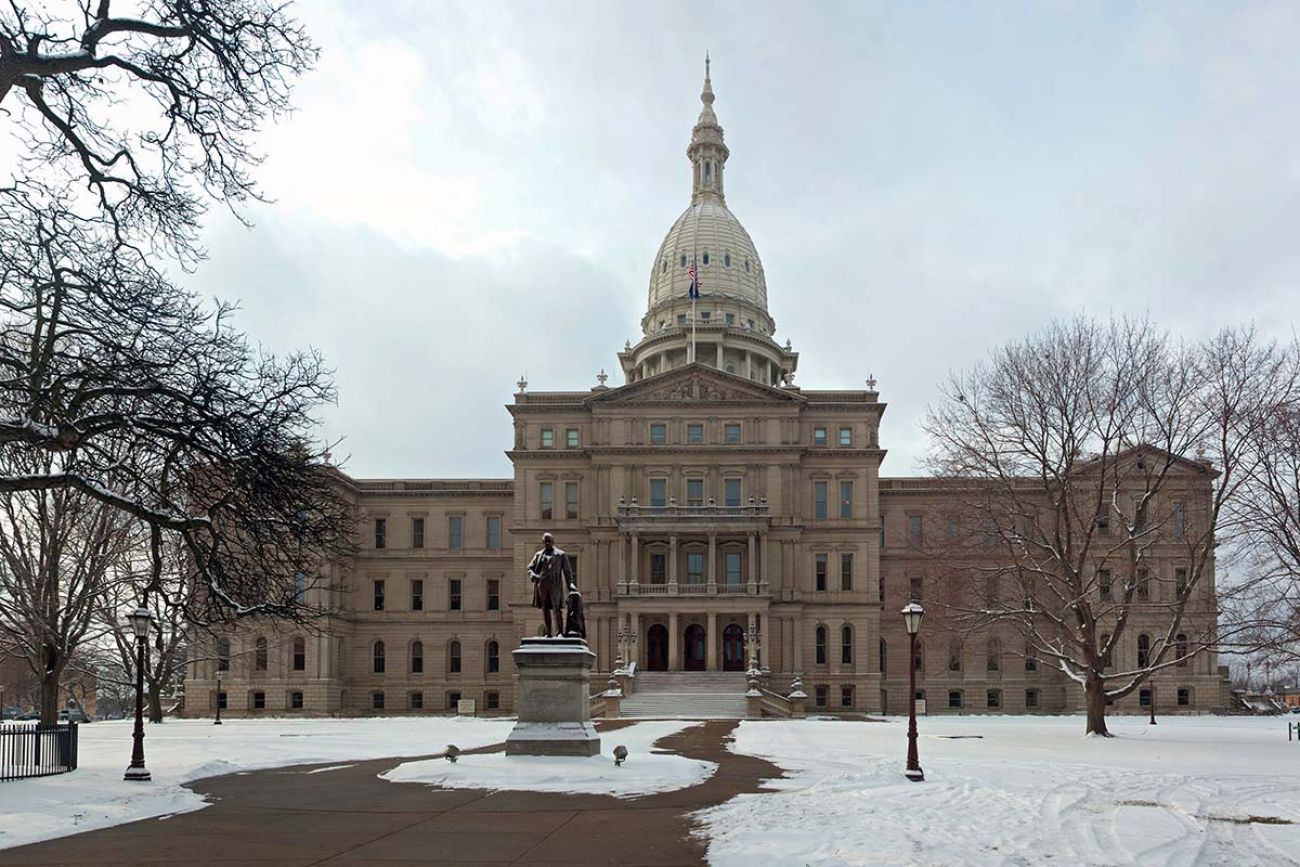Michigan lawmakers clear $1.3B spending bill with $630M for Ford EV battery plant

- The $1.3 billion spending plan contains $630 million for site development of Ford Motor Co. megasite
- In exchange for incentives, state expects the new Ford factory to generate $29.7 billion in worker income over the next 20 years
- The plan saw bipartisan support in the House, but detractors criticized “corporate handouts”
LANSING — A $1.3 billion spending plan that contains nearly $630 million for site development for a planned Ford Motor Co. electric vehicle battery facility in Marshall has cleared both chambers of the Legislature.
The legislation, House Bill 4016, calls for $629.7 million for land acquisition, site preparation and road and infrastructure improvements to make way for the incoming facility, which could employ at least 2,500 people once it opens in 2026 near Marshall.
Ford is also getting just over $1 billion in incentives, including a $210 million grant and a waiver of property taxes on hundreds of rural acres between Marshall and Battle Creek, following a vote by the Michigan Strategic Fund, the public funding arm of the Michigan Economic Development Corp.
Related:
- New Michigan scholarship seeks to fill jobs at state’s EV companies
- 5 (mostly) good things to know about Michigan’s progress on EVs
- Ford battery plant in Michigan rose from the state’s failure in 2021
Supporters called the Ford development a “transformational” deal that was good economic news for Michigan.
“It’s the best economic news we’ve had in south central Michigan, I perceive, since the corn flake,” Rep. Jim Haadsma, D-Battle Creek, said on the floor.
Four Republicans — Reps. Phil Green, R-Millington; Mike Mueller, R-Linden; Kathy Schmaltz, R-Jackson; and Curt VanderWall, R-Ludington — joined the majority of Democrats in supporting the deal.
Rep. Dylan Wegela, D-Garden City, voted against it, citing concerns that lawmakers in the first two months of session have “effectively given one of the largest corporate handouts in Michigan history.”
And Rep. Sarah Lightner, R-Springport, argued the projected pay for workers is “mediocre” when compared to the investment being made with taxpayer dollars.
“I get that there is some business that will benefit from this project, but the working people across Michigan are footing the bill and paying a premium price to land Ford in Michigan,” Lightner said in her no vote explanation.
In exchange for tax breaks and other incentives, the state expects the new Ford factory to generate $29.7 billion in personal income over the next 20 years from workers who are expected to make $20 to $50 per hour.
Local economic developers also will receive a $36 million loan from the Jobs for Michigan Investment Fund to purchase parcels and make infrastructure improvements to 950 acres of the 1,900-acre site. The Marshall Area Economic Development Alliance is leading the development effort on the so-called megasite.
According to Ford, the factory would be the first in the U.S. to produce lithium iron phosphate (LPF) batteries, which company officials say will make EVs more affordable.
The Chinese partner, Contemporary Amperex Technology Co. Ltd. (CATL), would supply the technology design and early versions of the batteries until the factory opens for operation.
So far this year, the state has secured $13 billion in electric vehicle and battery manufacturing projects and announced nearly 13,000 new automotive jobs, according to Gov. Gretchen Whitmer’s office.
Another $170.3 million in the legislature’s $1.3 billion deal passed by the House Wednesday evening would be deposited into the state’s Strategic Outreach and Attraction Reserve (SOAR) fund, a pool of money designed to bring businesses into the state.
The legislation would use $826.6 million in state funding and $500 million in federal funds.
Other proposed spending in the bill includes:
- Roughly $200 million for hospitals, including hospital staffing and workforce grants for nursing homes
- $25 million for assisting residents at risk of water shutoffs
- $60 million for grants to community centers
The legislation previously passed the Senate in a 22-16 vote after late-night deliberations on Tuesday and will soon head to Gov. Gretchen Whitmer for her review.
See what new members are saying about why they donated to Bridge Michigan:
- “In order for this information to be accurate and unbiased it must be underwritten by its readers, not by special interests.” - Larry S.
- “Not many other media sources report on the topics Bridge does.” - Susan B.
- “Your journalism is outstanding and rare these days.” - Mark S.
If you want to ensure the future of nonpartisan, nonprofit Michigan journalism, please become a member today. You, too, will be asked why you donated and maybe we'll feature your quote next time!




